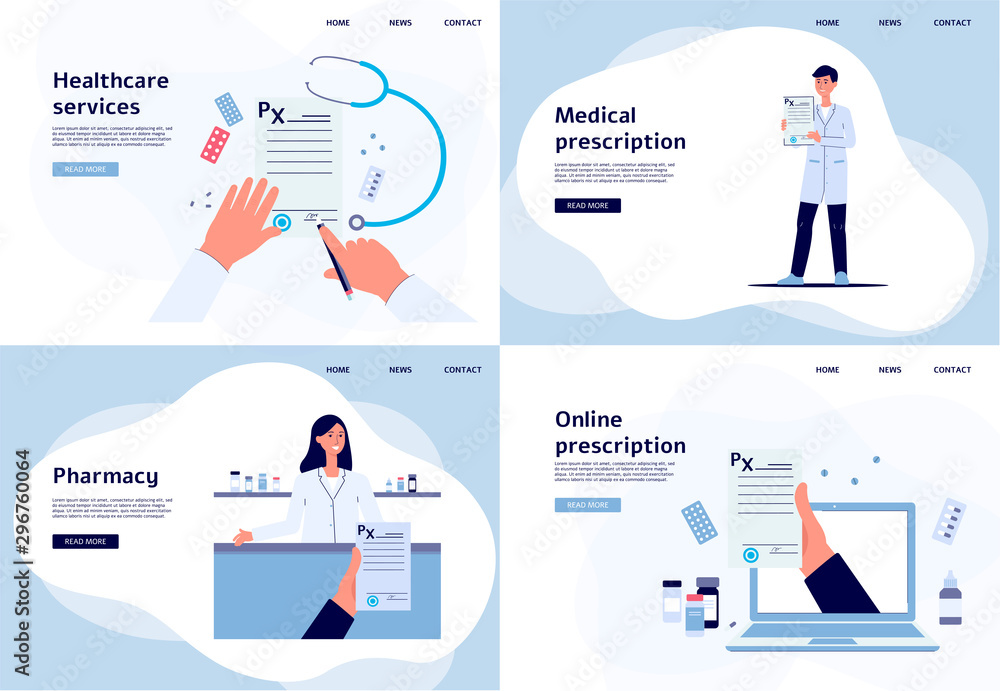Navigating the Future of Medication With Subscription-Based Health Care Solutions
As the medical care industry advances, subscription-based solutions become a critical design assuring to improve individual treatment distribution. With the prospective to offer streamlined, cost-efficient services via predictable pricing and customized interest, these services stand at the center of modern medical development. Yet, as we consider their increase, one should contemplate the ramifications of incorporating such systems into existing health care frameworks. What challenges do they present in terms of data security and fair accessibility, and exactly how might they redefine the patient-provider partnership? The solution to these inquiries might essentially change our technique to health care.
Increase of Membership Health Care
As health care systems around the world face enhancing pressures from climbing prices and need for services, the development of subscription-based medical care designs has arised as a transformative fad. This cutting-edge method is interrupting standard healthcare delivery by supplying a foreseeable, flat-rate payment framework for medical solutions. Rooted in the principles of attendant medicine, subscription-based healthcare permits carriers to concentrate on personalized patient treatment while all at once taking care of operational performances.
The increasing consumer demand for transparency and predictability in healthcare expenditures has actually driven the shift in the direction of this version. Subscription-based solutions frequently provide direct access to medical care experts, which can reduce the administrative burdens associated with insurance claims and reimbursements.
This model is getting grip amongst diverse medical care carriers, from medical care doctors to specialized centers, by lining up financial incentives with preventive and continuous care. By moving the emphasis from quantity to value-based treatment, registration medical care has the possible to reshape the landscape, fostering a more sustainable and patient-centered technique to health monitoring.
Advantages for Patients

Furthermore, subscription-based services typically highlight precautionary care, motivating routine check-ups and wellness screenings. This proactive strategy can bring about very early discovery of health and wellness concerns, possibly improving results and decreasing long-lasting healthcare expenses for clients. Furthermore, such designs generally offer transparent rates, allowing clients to better comprehend their healthcare costs and avoid unexpected medical expenses.
The customized nature of subscription-based medical care also improves person experience. Individuals can receive customized healthcare strategies that match their specific needs, promoting a more patient-centric approach.
Technology's Duty in Makeover

Fabricated intelligence (AI) plays an important duty in anticipating analytics, aiding in very early diagnosis and customized therapy plans. AI algorithms evaluate vast datasets to determine patterns that may be overlooked by human monitoring, thus enhancing professional decision-making. Digital health records (EHRs) enhance client info monitoring, guaranteeing continuity and comprehensibility of treatment across numerous services and carriers.
Blockchain modern technology improves data safety and security and privacy, vital for preserving individual count on digital platforms. It allows protected and clear transactions of medical data, ensuring that sensitive details continues to be safeguarded. With the integration of artificial intelligence and AI, blockchain can automate intricate medical care processes, reducing management concerns.
Factors To Consider and challenges
While innovation drives the capacities of subscription-based health care solutions, it additionally introduces a collection of obstacles and factors to consider that have to be resolved to ensure effective application. One considerable obstacle is the equitable ease of access of these solutions. As subscription designs commonly count on digital systems, there is a danger of exacerbating the digital divide, leaving behind individuals without web access or digital proficiency. Making sure these solutions do not overmuch benefit only tech-savvy and wealthy populaces is important.
Information personal click resources privacy and protection stand for an additional essential consideration. Subscription-based solutions frequently entail the collection and storage space of vast quantities of personal health and wellness details. Service providers need to follow rigorous data protection policies to keep patient trust fund and stop unauthorized accessibility, which can lead to considerable moral and legal repercussions.
Additionally, the sustainability of membership versions poses a difficulty. As health care requires progress, preserving a cost-efficient balance between membership charges and solution quality is important to stop client discontentment and attrition. Integrating these services within conventional medical care systems calls for smooth interoperability between systems, which is typically a complicated and resource-intensive undertaking. Addressing these obstacles is necessary as subscription-based medical care services remain to increase and evolve.
Future Implications for Medicine
Subscription-based health care solutions are positioned to dramatically affect the future landscape of medication by improving exactly how treatment is accessed and provided. These designs use the possible to equalize medical care gain access to, supplying individuals with even more timely and customized interventions. By leveraging technology, such as telemedicine and information analytics, registration solutions can assist in constant monitoring and tailored wellness monitoring, therefore improving outcomes and lowering the worry on standard health care systems.
As these services gain grip, they might promote a shift in the direction of preventative care, emphasizing the relevance of very early detection and monitoring of persistent conditions. This aggressive technique may ultimately lower health care prices by minimizing the demand for costly therapies arising from late-stage disease management. Registration designs offer a scalable option to address differences in healthcare access, especially in underserved or rural populaces.
However, the change towards subscription-based designs demands dealing with honest and regulatory considerations, consisting of information privacy and equitable accessibility. As the industry develops, joint efforts between policymakers, modern technology developers, and doctor will be critical to establishing robust structures that guard client rate of interests while cultivating innovation. Eventually, these solutions assure to contribute considerably to a much more reliable, patient-centered medical care ecosystem.

Final Thought
Subscription-based healthcare services stand for a significant development in the clinical area, providing foreseeable prices and personalized treatment that boost availability and focus on preventive steps. Technical advancements, such as telemedicine and AI-driven analytics, assist in customized person experiences, improving general health results. Challenges such as data personal privacy and fair accessibility need to be resolved to make certain the widespread benefits of these solutions. As the healthcare landscape evolves, subscription models are poised to play a critical duty in shaping the future of medicine.
As the medical care market develops, subscription-based services arise as an essential design promising to improve individual care delivery.As medical care systems around the world face enhancing pressures from climbing expenses and demand for solutions, the development of subscription-based healthcare versions has emerged as a transformative fad (subscription based healthcare).With the rise of subscription-based medical care designs reshaping typical health care straight from the source delivery, people are beginning to experience substantial benefits from this innovative technique. As healthcare requires evolve, keeping an economical balance in between subscription charges and solution high quality is essential to stop patient discontentment and attrition.Subscription-based healthcare services are positioned to More Info considerably influence the future landscape of medicine by improving exactly how treatment is accessed and provided